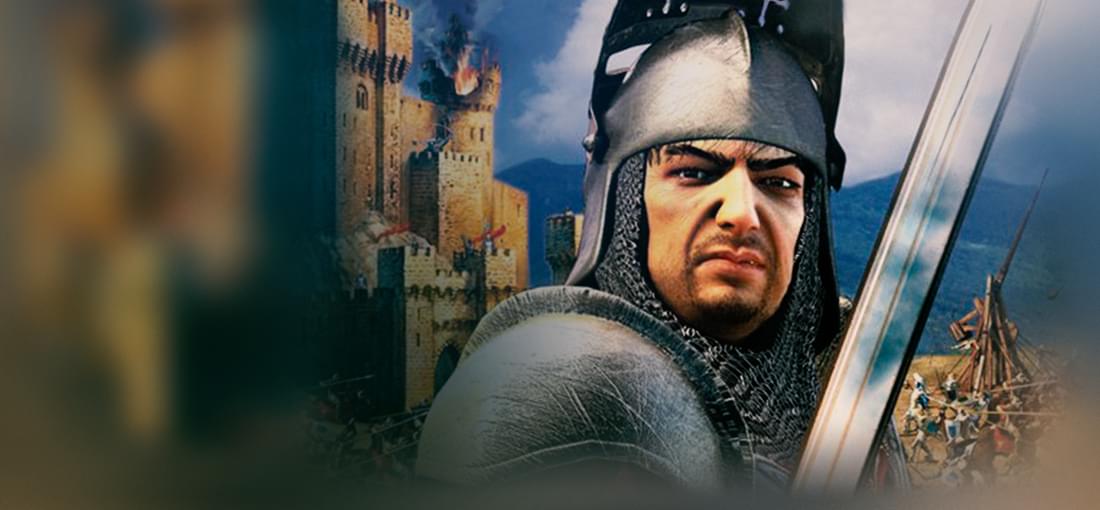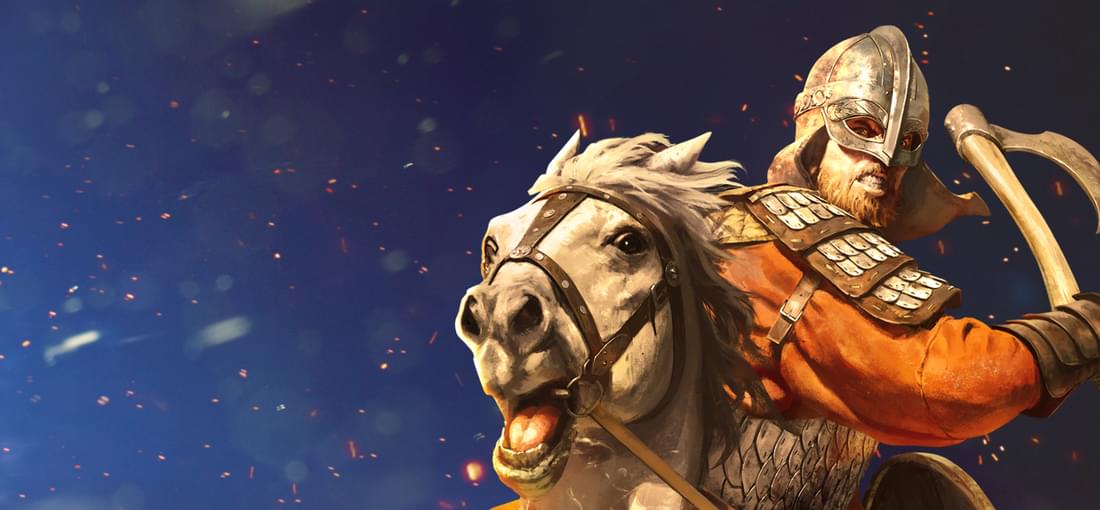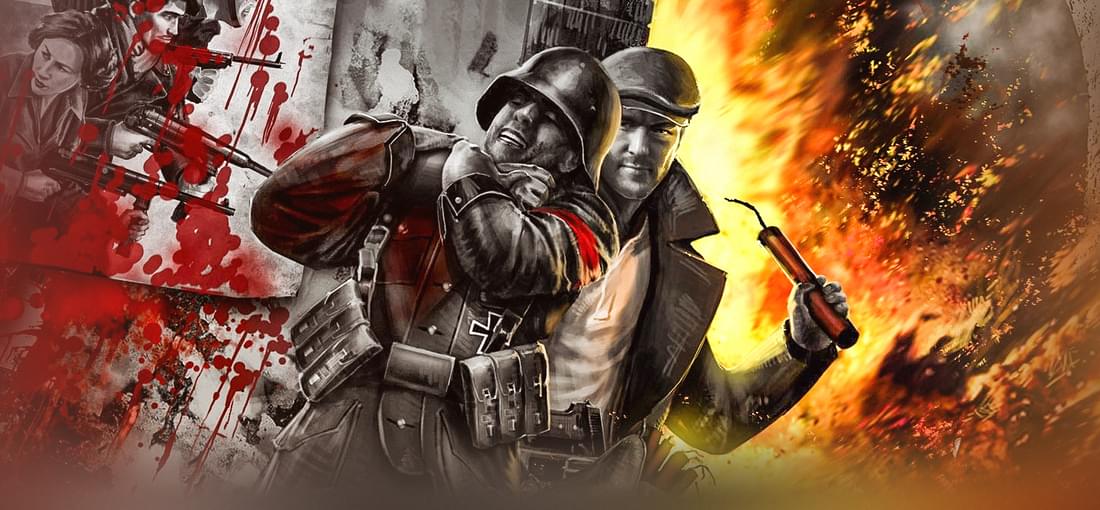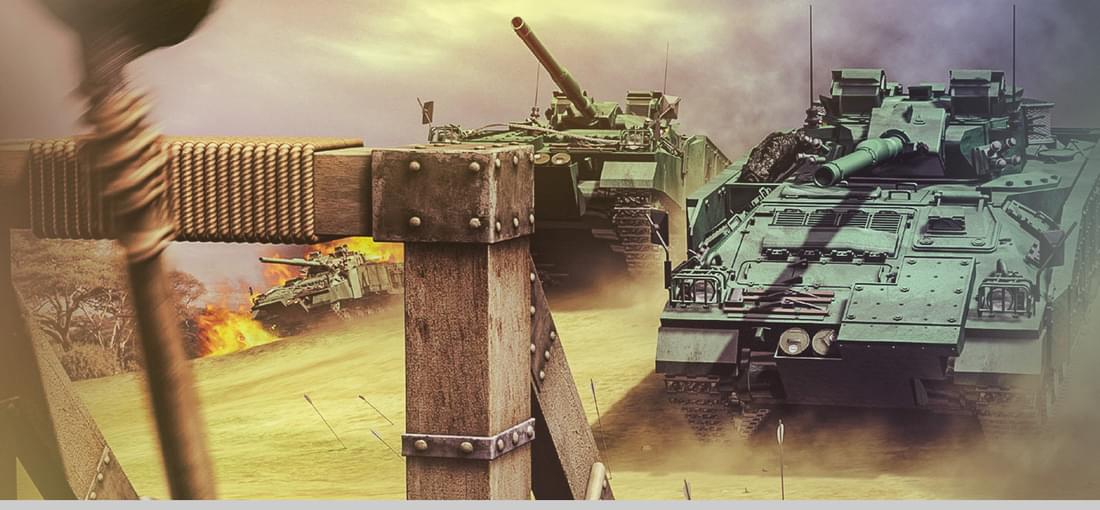


A first glance, Knights of Honor may seem unimpressive, like a pound-shop knockoff of Medieval: Total War. However, such an assessment would sell this indie gem seriously short. Knights of Honor is a real-time grand strategy game where the player takes control of a medieval kingdom and attempts to achieve domination over Europe through either conquest or diplomacy. To aid players in this, they have access to a royal court consisting of the titular Knights, who can perform various tasks such as leading armies, spying, or conducting trade. This sets the game apart from other medieval strategy titles, adding a welcome dose of personality and light role-playing gameplay to the mix. Gameplay is varied and challenging, with the player switching seemlessly between kingdom management. ordering their royal court around, and commanding tactical battles. The game also features a surprisingly deep economic system in which long-term development of resources is crucial, as it is impossible to build everything in every city, necessitating careful forward planning if the player wishes to construct powerful advanced buildings such as cathedrals and trading guilds. The hand drawn artwork looks magnificent, and has aged wonderfully compared to the by now clunky-looking 3D graphics featured in many other games from this era. The game's soundtrack is also a standout, and would be an excellent piece of music even without being attached to the game. The only real downside to this game is the clunky combat controls, with battles more often than not simply devolving into a disorganized scrum where any attempt at tactics goes out the window. This is the only real part of the game that truly feels limited and primitive, as there is no way to do things like place units into complex formations or to skirmish with archers. Overall, Knights of Honor is a legitimately creative, well-made, and fun medieval strategy title. Highly recommended.

Cartel Tycoon is an unusual twist on the tycoon genre set in the drug wars of the 1980s. The player plays as a drug smuggling gang in a fictional Latin American country, trying to become the dominant criminal power in the region while avoiding death at the hands of the police, other gangs, or their own lieutenants. Some jank notwithstanding, this is an oddball gem that I strongly recommend. On the positive side, the core gameplay, which revolves around the logistics of growing, processing, and transporting illegal drugs, is simple, but fun and addictive. Negotiating with politicians and other gangs is tricky but rewarding, and you really feel like you're always dealing with an individual with their own unique quirks and needs, rather than just a set of stats and a picture. At first it can be tricky to learn to balance legal and illegal businesses in order to avoid heat from the police and calls for a crackdown from citizens, but once the basics are figured out it becomes fun to try to walk the balance as best as possible. The graphics are excellent for an indie title, especially the hand drawn character portraits, and the extensive original soundtrack of contemporary Latin music is also of high quality. In the more negative side, the game does occasionally suffer from some strange issues, such as text that seems as if it was badly translated into English from another language. Also, combat in the game is very simplistic and kind of boring, with the player not really having any direct control over it and usually boiling down to a matter of which side has a larger gang. In conclusion, Cartel Tycoon is a unique twist on the tycoon game genre, one that was clearly made with heart and genuine enthusiasm. Recommended to anyone who enjoys tycoon games, strategy games in general, or who has an interest in crime games.

The Roaring Twenties are arguably an underused setting in video games. Only a handful of games have ever really utilized it, and of those arguably only one, the first entry the Mafia series, has ever achieved any real mainstream recognition or success. Gangsters: Organized Crime is an unfortunate member of this club of forgotten games, but nevertheless one that you should add to your library today. Taking place in a fictionalized version of 1920s Chicago, Gangsters casts you as an up-and-coming crime boss with the ultimate goal of taking over the city through eliminating all rival gangs, being elected mayor, or going straight and becoming a legitimate business magnate. To accomplish this goal, you will order your trusted lieutenants and hoods to conduct a wide variety of illegal actions, including bootlegging, extortion, bribery, arson, and murder. You can also conduct diplomacy with other gang bosses, donate to charity to improve your image, acquire legitimate businesses, and hire lawyers and accountants to cover up your crimes. Gangsters has much to recommend it. The game world feels deep and alive, with your actions often having unforeseen consequences. Gameplay is an excellent mix of long-term planning and quick reactions to daily events. The AI is ruthless if you get sloppy, so fending of both rival gangs and the authorities is a requirement, rather than an annoyance or an optional extra. However, the game does suffer from a few issues that stop it from being perfect. The soundtrack is forgettable and the voice acting is lame. More importantly, the game can have severe stability problems, and issues like random CTDs and missing menu text can make extended playthroughs an irritating affair. Overall, Gangsters is an underrated gem despite it's technical issues. Any fans of strategy, historical games, the 1920s, or crime/Mafia lore should pick this one up.

I know others have said this already, and have probably said it better, but these are really the only words to describe this game. This is a worthy sequel to the original Mount & Blade and a glorious continuation of the franchise. On the positive side, Bannerlord preserves the addicting medieval combat of previous entries in the series, while simultaineously expanding on strategic elements such as commanding troops and developing your lands. The game now features a story-based campaign slongside the sandbox-style campaign of the original game, and the excessive difficulty, grinding, and lack of direction that often characterized the early game in previous entries have largely been eliminated, making this entry far more noob-friendly. Graphics are jaw-droppingly gorgeous, on a level you would generally associate with a major AAA developer rather than a fairly small indie studio. The soundtrack and sound effects are likewise a high point of this game, contuing the series' excellent track record in this department. The only real downside to my experience with this game so far has been multiplayer. There seem to be almost no populated public games no matter what time of day you try to find one, and the few that I did manage to find tended to suffer from rude players who would berate you for minor infractions or kick vote you without warning. Overall, Bannerlord is a must-play title for fans of RPGs, medieval-style worlds, or just anyone who wants to support an indie-studio with AAA skills. Just don't buy it exclusively as a multiplayer title.

At first, you may tempted to dismiss this title as essentially Battlefield 1942 with a Star Wars skin painted over it. In many ways, you would be right, as most of the elements that give the Battlefront series its unqiue identity (space battles, playable Jedi, etc.) did not arrive until the sequel released a year later. That said, to write this game off as inferior would be a serious mistake. On the positive side of things, gameplay is tight, with a good variety of both open and closed maps, beefy vehicles that are fun to cruise around in, and interesting special abiltiies like personal shields and jetpacks. All of the classic Star Wars locations are here, from the Dune Sea to Theed, as well as music, sound effects, and clips from the films to create immersion and really make you feel like you're in the epic battles from the movies. You have the option to fight a one-off battle against either AI bots or online against other players, play through two campaigns based on the films, or play through a self-directed campaign in Galactic Conquest mode. On the negative side of things, some maps and weapons and unbalanced, and the AI fairly blatantly cheats at higher difficulty levels, both of which can become especially infuriating in campaign mode. As I alluded to earlier, this game is missing many of the features from the sequel, such as space battles, playable Jedi, and a standalone story-based campaign, that made the series fell unique, so be prepared for a bit of a letdown. Overall this is a great game despite being somewhat overshadowed by its sequel. Highly recommended for both Star Wars and FPS fans.

The Saboteur is a unique third-person action game in which you takeon the role of Sean Devlin, an Irishman who inexplicably winds up joining the French Resistance during World War II. Your mission is to defeat occupying Nazi forces by any means necessary, including shooting, bombing, stealing vehicles, and generally causing all kinds of mayhem across an open-world Paris. Think Assassin's Creed, Grand Theft Auto, Mercenaries, Red Faction, and Inglorious B******s thrown into a blender and you'll have a good idea of what you're in for. In the positive side, the setting and atmosphere of this game is fantastic. Its refreshing to see a game portray World War II from a perspective other that of the "Big Three" (USA, UK, USSR), and 1940s Paris is lovingly recreated in a detailed, if somewhat superficial, open world that was legitimately ahead of its time when this game was released. The stark black and white graphics and sleazy jazz soundtrack add to the atmosphere. Gameplay is varried and always fun, and the game generally leaves it up to you how to handle most missions. Infiltrate in disguise, set off an explosion as a distraction, or go in the front door blazing away with a machine gun? The choice is yours. Unfortunately, the game falls short in several areas that undermine its promising concept. The tone of the story is weirdly inconsistant; it seemingly can't decide if it wants to be a serious war drama or a cheesy B-grade action affair, and the switiching between the two is jarring. The controls can at times be clunky and awkward, and it's frustringly easy to accidentally jump off a ledge insatead of climbing it or accidentally pop out of cover duing a shootout and get killed. Finally, this game was originally made for consoles and ported to PC, and the lack of optimization and options definitely shows at times. Reccomend you play with a controller/gamepad if possible. Overall, The Saboteur is a great concept unfortunately let down by spotty execution.

Victoria II is a real-time grand strategy game in which you take control of a nation in the "Long Nineteenth Century", guiding it to glory from the ascension of Queen Victoria through to the beginning of the Great Depression. You can control of almost any nation that existed during that time period, including established powers like Britain, "young guns" like the United States, and tottering has-beens like the Ottoman Empire, and guide them through industrialization, trade, diplomacy, war, colonialism, and political strife. The game has much to reccomend it. Gameplay is subtly addictive, a lot like what happens with the Civilization series. You keep playing way longer than you should because you're always thinking "just let me finish building this cloth factory/colonizing this state/negotiating this alliance etc." The extensive historical research that went in to developing the game is another plus; history buffs (like me) can geek-out on playing through events like the Scramble for Africa and the American Civil War, and novices can learn quite a bit without even realizing it. Art and sound are also great, with loading screens that look like oil paintings and the soundtrack a combination of gentle waltzes and rousing military marches. Unfortunately, this game does have a few downsides that keep me from being able to give it a perfect score. The learning curve is steep and the in-game tutorial is not that helpful, so you'll probably need to consult online wikis and YouTube guides to really get to grips with the game. The AI, while competent, is not always great, and will sometimes make strange or stupid decisions, like suicidally charging its entire army into a forified mountain province or building factories that instantly go bankrupt. Overall, Victoria II stands out as a cult classic in the strategy genre, a detailed and fun portrayl or a historical epoch that tends to get passed over by gaming as a whole.

Civilization III is often regarded as the "black sheep" of the Civilization series, overshadowed by the games that followed after it. However, those who take the time to give this forgotten gem a try will discover that it truly "Stands the Test of Time". For Civilization fans like me, Civilization III introduced many important concepts that are now central to the series, such as the idea of buildings and wonders generating "Culture" that drives border expansion, or each civilization having unique traits and units as opposed to being merely copies of each other with only minor cosmetic differences. Beyond it's historical value, Civilization III appeals to all strategy fans by perfectly embodying the addictive "One More Turn" gameplay loop that Civilization is famous (or infamous) for. Cities are built and grow, technologies are researched, wars are fought, buildings built, and treaties made. It is incredibly gratifying to see your civilization grow into a mighty empire over time, either through peaceful settlement or though conquest, and trying to beat not only the AI, but also your own personal best. Speaking of, the AI in this game is generally fairly good, being able to pose a reasonable challenge without seeming like it's getting an unfair boost. However, I do have to knock a few points off of this review, mainly due to the game's age. The isometric graphics have not aged terribly well, and often look muddy and ugly by modern standards. The sound is passable, but certain effects and music can eventually become grating. Finally, certain gameplay features that became common in later Civilization games, such as religion and "Great People", are minimally present or outright missing, which can be jarring for people like me who cut their teeth on more modern entries in the series. However, such age-related issues are minor, and shouldn't stop both Civilization fanatics and strategy fans in general from picking up this wonderful, old-school 4X game.

Let me start by saying that, as a longtime fan of the series, I firmly believe that there are no outright "bad" Civ games (at least in the main line of numbered entries anyway). However, there are definitely "weaker" and "stronger" entries in the series, and my personal experience with this one make me inclined to view it as one of the weaker ones. For starters, let me discuss some of the positive aspects of this game. The grpahics are excellent for their time, and still hold up reasonably well today. Likewise, the soundtrack is excellent, and might be the best CIv soundtrack of all time. Gameplay is varied and, I will admit, can become quite addicting. On top of the main game, there are a wide variety of interesting "scenarios" (essentialy shorter games with special rules) to choose from, with settings ranging from medieval Europe to World War II to outer space. All of this having been said, the actual gameplay has several issues that, at least in my experience, quickly turn the game into a slog in most cases. First off, scientific research, culture, income, and espionage all come from the same pool of points, and as such constant, irritating slider adjustments are needed lest one fall behind in any area. Likewise, city "specialists" and "Great People" must also be constantly micromanaged in order to consistantly get good results. Beyond the tedious economy, the game seems to reward war and rapid expansion over peaceful play and building, to the extent of almost railroading the player into frequent wars and reckless city building just to remain competative with the AI. To put it plainly, a game where you have to obsessively tweak sliders and move personel around, only to lose because Shaka or Ragnar steamrolled the entire map again is just not very fun to me. Some may call it "challenging", but I call it "furstrating". In conclusion, Civilization IV is not a "bad" game by any means, but it is one of the weaker entires in the Civilization series as a whole.

Released in 2002, Star Wars: Jedi Knight II: Jedi Outcast is the third entry in the now-defunct Dark Forces/Jedi Knight series. This game follows the adventures of Rebel mercenary and former Jedi Knight Kyle Katarn as he returns to the Jedi Order in order to unravel a vast Imperial conspiracy and avenge a personal loss. Featuring a unique combination of first-person gunplay and third-person lightsaber battles, Jedi Outcast holds up extremely well in spite of its age. The main portion of Jedi Outcast is a singleplayer campaign spread out over eight massive levels, each of which is divived into several smaller sub-levels. The campaign can take anywhere from ten to twenty hours to complete dpending on the difficulty level and the skill of invidiual players, and provides a fairly even challenge throughout. The story is nothing to write home about, but is solid and features a few unexpected twists, and is fairly easy to follow for non-Star Wars fans. Campaign gameplay focuses primarily on cobat with blasters, explosives, lightsabers, and force powers, with a few platforming, turret, and vehicle sections mixed in to break up the action a bit. The standout aspect of Jedi Outcast is the combat, which seemlessly melds ranged and melee combat in a way that feels intuitive and natural. Enemies have different strengths, weaknesses, and equipment, forcing the player to change-up tactics and punishing button-mashing and carelessness. Although some weapons and abilities are arguably overpowered (such as a shotgun-type weapon that does double duty as a grenade launcher, or a force power that allows something similar to a Max Payne-style "bullet time" mode), this is generally not a serious issue at all. Likewise, the campaign can become frustrating at times, due to unclear directions, confusing level design, or overpowered enemies, but such issues occur very infrequently, and are momentary annoyances at best.